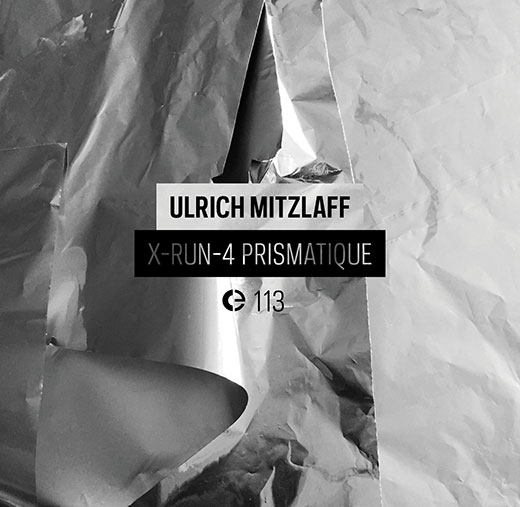
Background noises get typically considered a disturbing element of live recordings, but I won’t say the same for this output, capturing a solo improvisational session by German (even if he resides in Lisbon since a long time) cellist and composer Ulrich Mitzlaff in a spacey hall nearby the motorway close to Humberto Delgado Airport in Lisbon under commission of the Portuguese National Civil Engineering Laboratory over two different days (November 30th and December 21st 2014). Besides the typical reverb added by vast spaces, the hissing noise generated by traffic as well as more or less distinguishable sounds of departing and landing airplanes seem to have been fully integrated in the recording as they were (without any treatment), and I’d rather say you could have the feeling that Ulrich’s beloved instrument, as well as the stylistic shaping he evokes by means of it, got sometimes synched to the aural manifestation of human transportation. Covering an almost indistinct range between polka to skronk of free jazz till occasional episodes that could vaguely remind the prodigious counterpoints of Bach’s Cello Suite 1 or even Beethoven’s final parts of some of his more dramatic scores (resurfacing in particular during the central piece, the 20-minutes lasting “4-one”, featuring Beethoven’s just mentioned phrasing between 13th and 14th minute) features occasional percussive elements (mostly found objects and materials), highlighting the feeling of an authentic real-time recorded improvisation together with the performative fits of madness resulting into sudden accelerations of chord tapping and squeaking scratches (almost rendering the image of Ulrich while using his nails on his cello till they begin bleeding) as well as unexpected sparks of harmony. The instrumental eruptions, as well as their bizarre clutching with surrounding noises, could let you imagine that the composer/performer is just putting on an act a sort of dramatic fight between a forgotten cello and the rest of the absent-minded/absent-minding world; they are akin to two aural inputs or attractive poles that could vividly stage a struggle between emotion and apathy in the somehow alienating society we often could experience. Vito Camarretta
via Chain DLK
